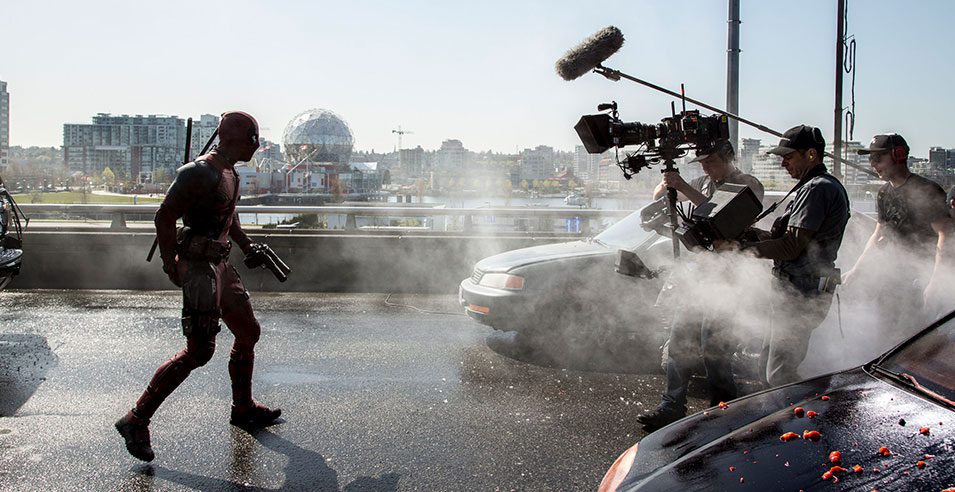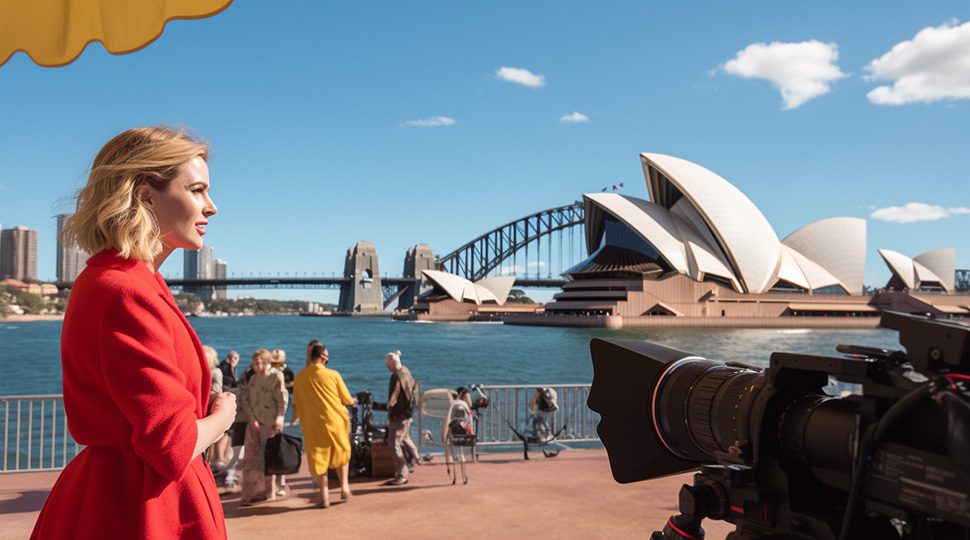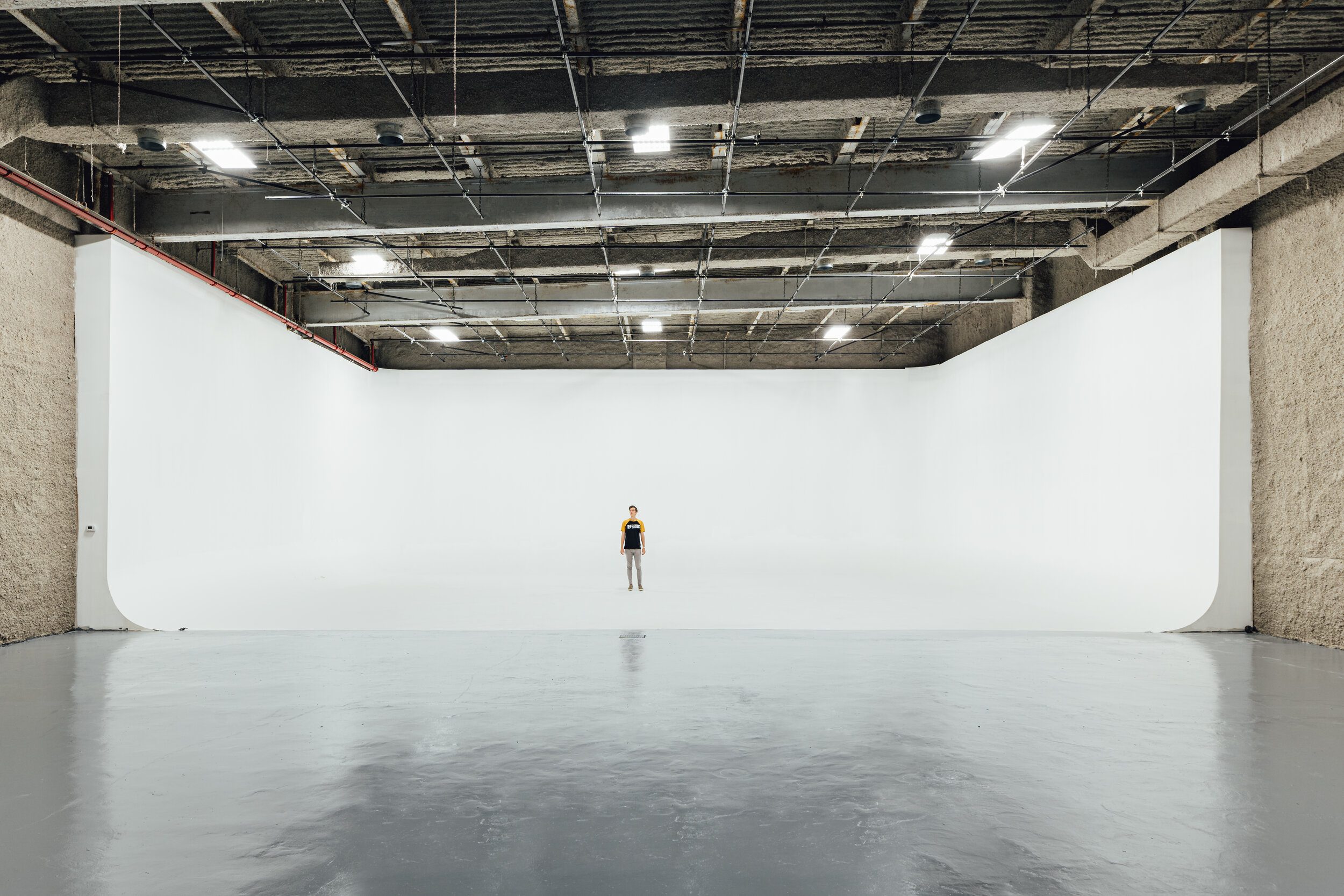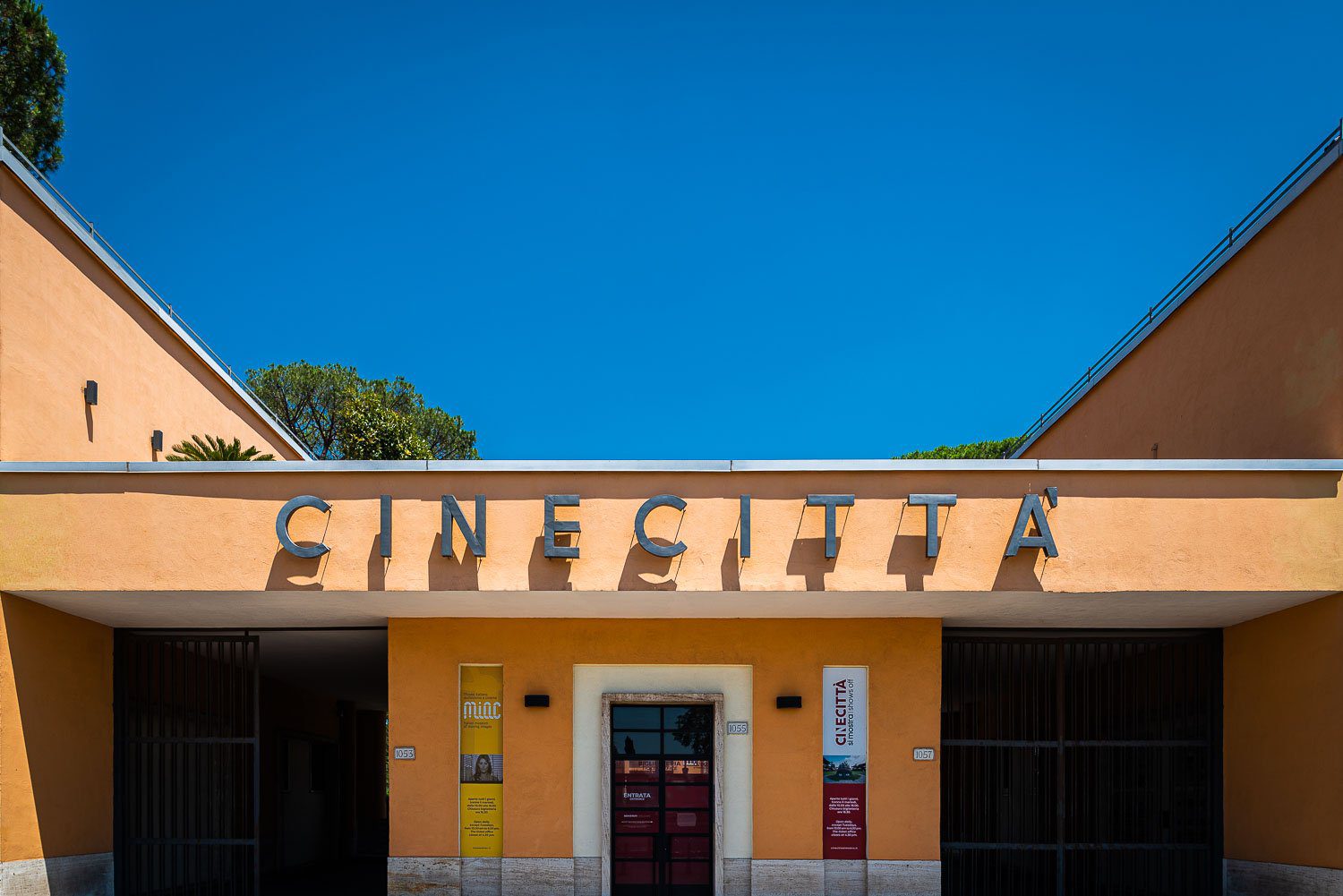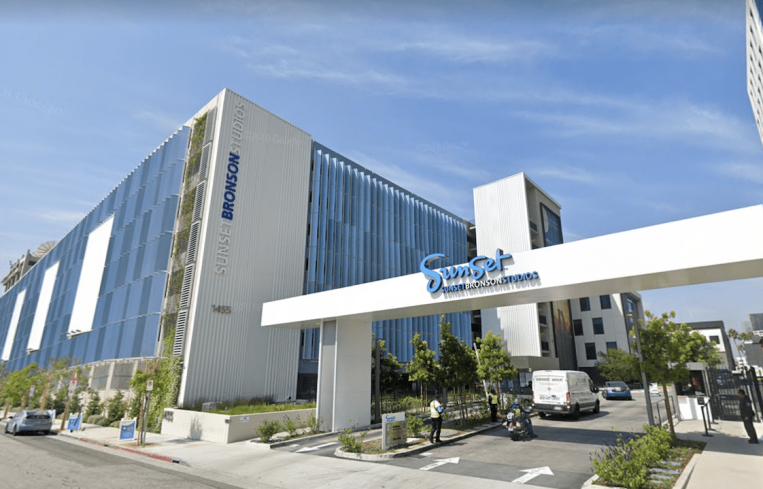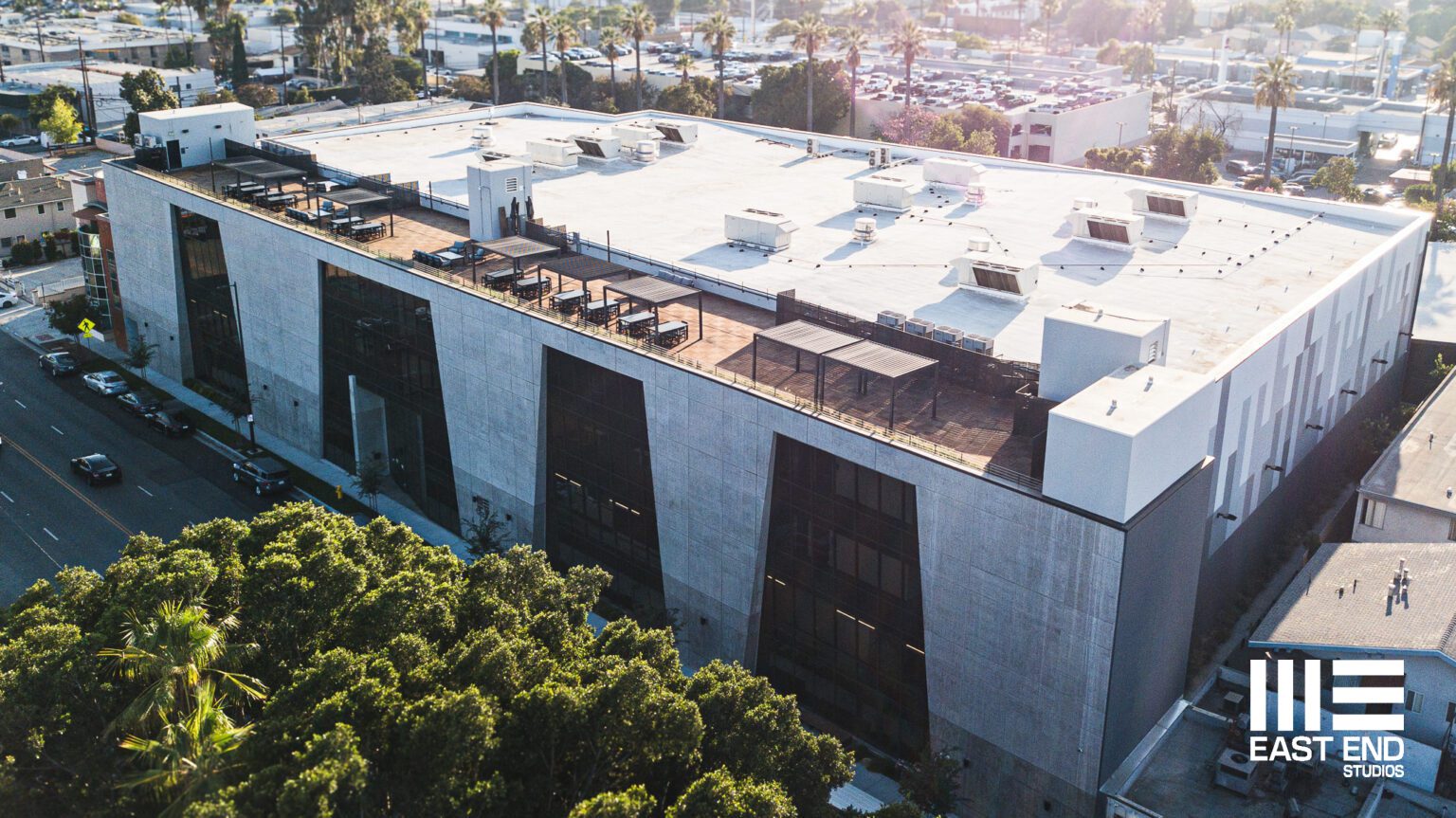This time last year, people in Vancouver’s TV and film production business were beginning to get nervous.The major American TV studios were scaling back and re-evaluating where they were spending their money — a streaming gold rush saw more studios built around the world, and more governments offering lucrative tax credits.Loud rumblings of labour unrest could also be heard.
Those rumblings turned into reality as the Writers Guild of America (WGA) went on strike from May 2, 2023, and stayed out until Sept. 27, 2023. The Screen Actors Guild followed suit soon after, going on strike from July 14 to Nov. 9, 2023.
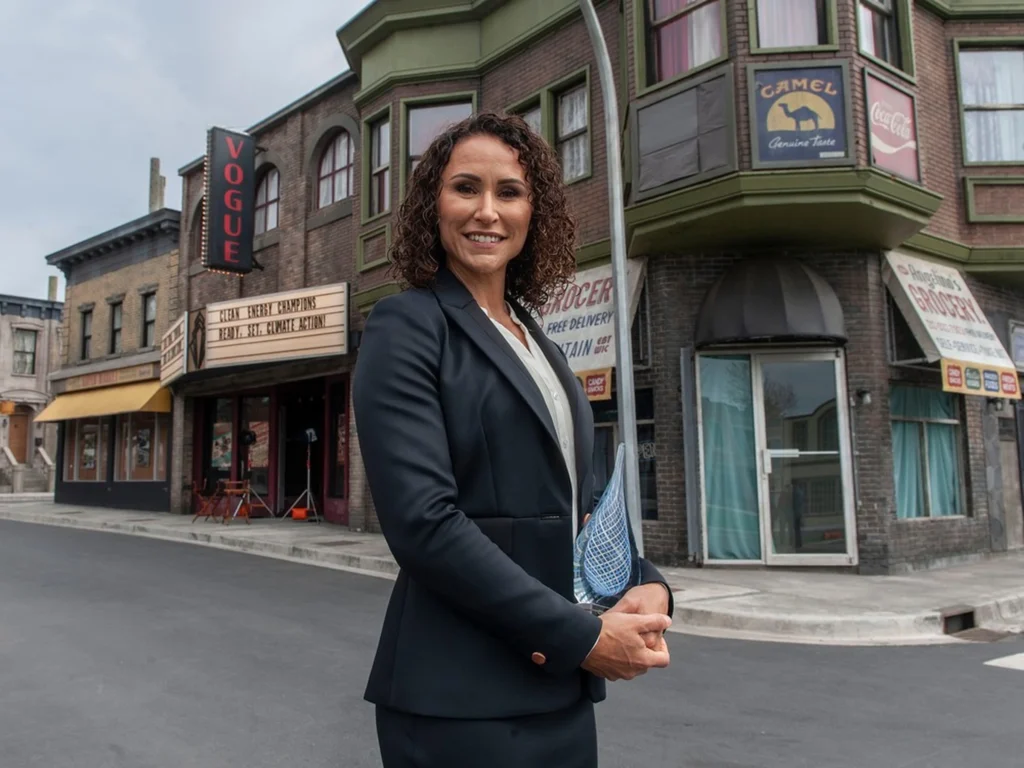
Gemma Martini, president of Langley’s Martini studios and the chair of the Motion Picture Production Industry of B.C., says people in the B.C. TV/film industry are “definitely going to have to think differently about the growth in the future,” than they have in the last 10 years. PHOTO BY JASON PAYNE /PNG
Hollywood North outlook
While there is optimism in B.C. about a full return of the industry, it’s guarded as another American strike is looming. The International Alliance of Theatrical Stage Employees (IATSE) is in talks with the Alliance of Motion Picture and Television Producers (AMPTP) on its Hollywood Basic Agreement, which is set to expire July 31. If the IATSE does go out on strike, some productions may move up here.
But, American IATSE members, including department heads and key crew, can’t work. And SAG and WGA will likely return the support that IATSE showed during last year’s strikes.
A possible strike aside, business in B.C. is building back. But it still has a way to go before returning to 2022 numbers. According to Creative B.C. in 2022, the B.C. TV/film industry contributed $4.4 billion (tax credit qualifying and non-tax credit qualifying) to the B.C. economy. Around 90,000 people were employed with close to 50,000 of those being full-time jobs.
According to the Motion Picture Production Industry Association of B.C. (MPPIA), 48 per cent of union crews are currently working in B.C. At this time of year, that number is usually 68 to 75 per cent.
“We are definitely going to have to think differently about the growth in the future than we have in the last 10 years,” said Gemma Martini, president of Martini Studios in Langley and chairwoman of the MPPIA.
“In our minds, what’s going to happen in the next nine months, is we’re actually going to experience growth and get up to a higher level of production. Let’s call it a normalized level of production, come second quarter, third quarter this year.
Metro Vancouver has 17 per cent of the current active scripted productions in North America. As in the past, that puts B.C. third behind Los Angeles and New York.
Kelly Cole, president of North Vancouver’s post-production house Sharpe Sound Studios & Television, said, during the strikes, that his company was down 70 to 80 per cent. Because Sharpe Sound Studios is the last stop for a production, they’re still not up to capacity and are currently at about 50 to 60 per cent of their usual activity.
“If it (SAG strike) had gone on a little bit longer, we were going to have to start laying people off,” said Cole, who has a regular staff of 17. “Some days, it’s great. And, some days, it’s nail-biting. I don’t have any nails right now. But they are growing back.”
A B.C. buffer
The labour issues in the U.S. didn’t cause a complete shutdown in B.C. The local actor’s union (UBCP/ACTRA) negotiated to push its contract with American producers out a year, which meant that domestic productions were still able to shoot. In B.C., 15 per cent of productions are domestic while the remaining 85 per cent are service productions, which essentially means a Canadian company produces an American project.
One of those domestic production companies is Vancouver’s Lark Productions. Currently on its slate is Season 4 of the Corus/CW show Family Law. Last summer, Lark produced CBC’s Allegiance and Law & Order Toronto for NBC Universal and Rogers.
“We were still able to continue forward because everyone was under guild sanction and Canadian,” said Erin Haskett, president and executive producer of Lark.
“We’ve had in Vancouver this year at least two CBC dramas. We’ve had a CTV drama, and now there is a new Fox Canadian series (Murder in a Small Town) as well,” said Haskett. “We haven’t had this level of domestic production in Vancouver in a long time. It’s good, especially because it is filling a gap.”
Haskett believes the way forward for a sustainable industry in B.C. is a balance of domestic and service work.
“When we strike that perfect balance, we bring new talent into the system and we keep production running in a way that we don’t rely constantly on service,” said Haskett, adding that a lot of local crew had been out of work even before the strikes due to the “re-set” of the American companies.
“Crew are just happy to be working,” said Haskett. “It has been a slower than expected rebuild on production coming back on the service side. And so knowing they have work for the next four months is a really valuable thing.”
But as the American productions increase, pressure is put on the domestic side as crews have options.
“The challenge is our budgets are not the same as the American shows. People don’t get to work the overtime. They don’t get to work the rates that the service show does,” says Lark.
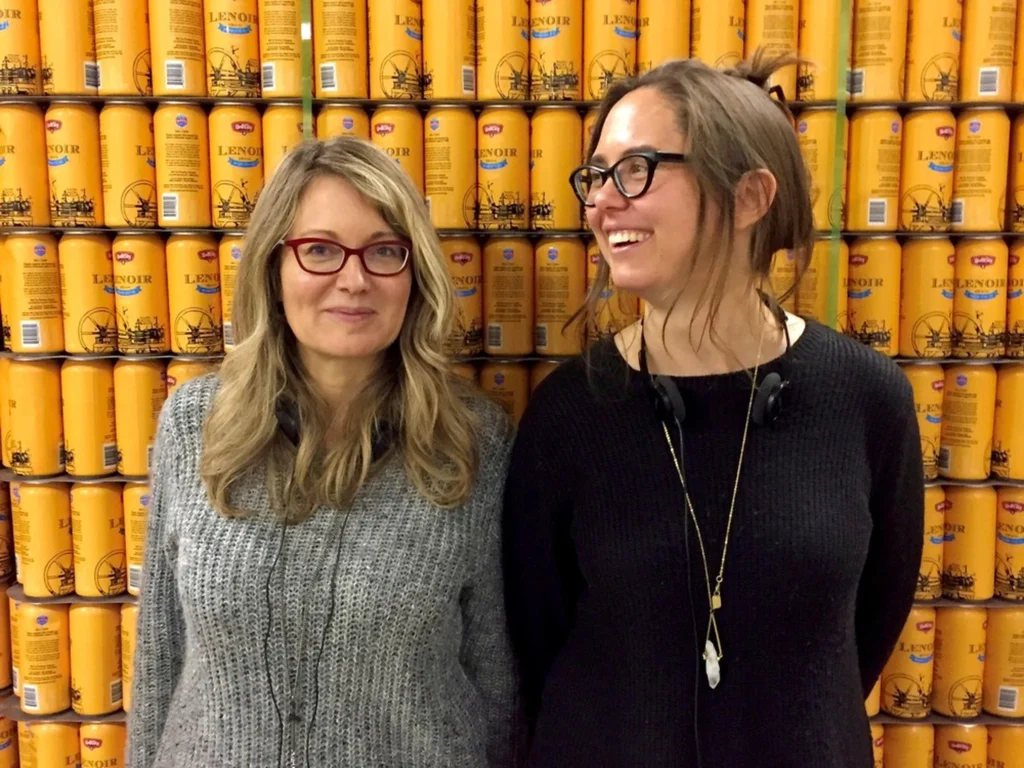
Sisters and the co-creators and writers behind CTV’s Sight Unseen Karen Troubetzkoy and Nikolijne Troubetzkoy, said it was stressful waiting to hear if their production was going to get a waiver that allowed them to work while the SAG and WGA strikes were on last year. PHOTO BY COURTESY OF CTV
Vancouver highlights
Another domestic project that put a lot of people to work during the strikes was the CTV/CW drama Sight Unseen. The series, created by Canadian sisters Niko and Karen Troubetzkoy, shot here last August through November with a SAG waiver.
“It was a nail-biter,” said Kat about waiting on the waiver.
“We were gearing up for shooting, and we knew that we probably would get it, in theory. But nobody had got one yet,” added Niko. “We didn’t know if it was going to materialize, so it was really, really stressful.”
“In Vancouver, crew members involved in the industry kept telling us, ‘We’ve never seen it like this.’ I guess even without the strike, the projection was that it was not going to be busy,” said Kat. “Everyone was happy to not only be working, but working in Vancouver on a true original show that’s not a franchise.”
While the contraction in the U.S. market is evident, there is still the consistent cash flow of the numerous Hallmark projects and a handful of bigger U.S. productions, like HBO’s The Last of Us and the CBS/CTV TV series Tracker.
Tracker, starring Justin Hartley, was the first American network show to go back to work after the SAG strike ended. The show’s executive producer and director, Ken Olin, said that everything was “accelerated” as the show was set to premiere after the Super Bowl in late January.
But while the pressure was on Olin, who has worked in Vancouver as both an actor and director many times in the past, he said the team was confidant heading back into production because they were shooting in Vancouver.
“We were able to get a really great crew in Vancouver. Connie Dolphin, who is the line producer, is incredible. She has a lot of really great relationships, so we had this thing in place. And we knew that we weren’t going to lose those people because we were going to be the first back,” said Olin over the phone from L.A.
“The crew that we are working with is as good as any crew I have ever worked with anywhere,” said Olin, adding the relief of being back to work was palpable on the set.
“As much as the actors and the writers felt triumphant, it was really difficult for a lot of people to be out of work. Especially during periods of time when, cyclically, they’re always working,” said Olin. “If you’re relatively young and you have a young family, you don’t have those kinds of savings or resources that you can just be out of work for six months. That was very, very tough. That has been an extraordinary thing to feel that kind of appreciation from people.”
While the great crews and proximity to diverse outdoor landscapes afforded in Hollywood North are key for Tracker, Olin said the bottom line is the most important consideration.
The B.C. government offers two basic tax credits to the TV/film industry: Film Incentive B.C. is a 35 per cent tax credit for Canadian-content productions, and the production services tax credit is 28 per cent, with no Canadian-content requirements. Both of those basic tax credits are stackable with other smaller credits that are offered. In 2022, the government provided over $900 million in tax credits to the film industry.
“That’s the first thing that gets put forward is, ‘OK, here are the financial incentives,’” said Olin, who includes the exchange rate on the U.S. dollar as an additional incentive. “I also know Vancouver and have worked in Vancouver a lot, so I was very comfortable with that. And, in terms of shooting in Canada. I much prefer to shoot in Vancouver than anywhere else. So, there’s a comfort level for me there.
“Another thing that’s nice about Vancouver is actually being in the same time zone as Los Angeles.”
Tracker has been greenlit for a second season, and Olin expects the show will return to start shooting in July, a time of year he admittedly prefers to Season 1’s winter shooting schedule.
“This was a pretty rough winter, but I can’t imagine shooting this show anywhere else,” said Olin. “It’s great because the crews are used to it, and it is a physically challenging show and that’s part of the character of the show.
“But, hey, once you’ve got a really good pair of rain pants, you never go back.”

The hit CBS TV show Tracker, starring Justin Hartley, will return to B.C. to shoot its second season says Ken Olin an executive producer and director on the show. PHOTO BY MICHAEL COURTNEY /CBS

